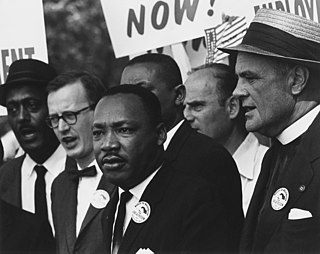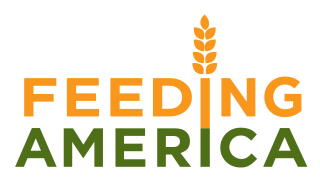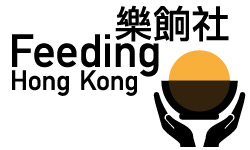Related Research Articles

The World Food Programme (WFP) is the food-assistance branch of the United Nations. It is the world's largest humanitarian organization, the largest one focused on hunger and food security, and the largest provider of school meals. Founded in 1961, it is headquartered in Rome and has offices in 80 countries. As of 2019, it served 97 million people in 88 countries, the largest since 2012, with two-thirds of its activities conducted in conflict zones.

In politics, humanitarian aid, and the social sciences, hunger is defined as a condition in which a person does not have the physical or financial capability to eat sufficient food to meet basic nutritional needs for a sustained period. In the field of hunger relief, the term hunger is used in a sense that goes beyond the common desire for food that all humans experience. The most extreme form of hunger, when malnutrition is widespread, and when people have started dying of starvation through lack of access to sufficient, nutritious food, leads to a declaration of famine.

Food security is the measure of the availability of food and individuals' ability to access it. According to the United Nations' Committee on World Food Security, food security is defined as meaning that all people, at all times, have physical, social, and economic access to sufficient, safe, and nutritious food that meets their food preferences and dietary needs for an active and healthy life. The availability of food irrespective of class, gender or region is another one. There is evidence of food security being a concern many thousands of years ago, with central authorities in ancient China and ancient Egypt being known to release food from storage in times of famine. At the 1974 World Food Conference, the term "food security" was defined with an emphasis on supply; food security is defined as the "availability at all times of adequate, nourishing, diverse, balanced and moderate world food supplies of basic foodstuffs to sustain a steady expansion of food consumption and to offset fluctuations in production and prices". Later definitions added demand and access issues to the definition. The first World Food Summit, held in 1996, stated that food security "exists when all people, at all times, have physical and economic access to sufficient, safe and nutritious food to meet their dietary needs and food preferences for an active and healthy life."

A food bank is a non-profit, charitable organization that distributes food to those who have difficulty purchasing enough to avoid hunger, usually through intermediaries like food pantries and soup kitchens. Some food banks distribute food directly with their own food pantries.
WhyHunger is a non-profit registered 501(c)(3) organization working to end hunger and poverty by connecting people to nutritious, affordable food and by supporting grassroots solutions that inspire self-reliance and community empowerment. The organization is based on the belief that solutions and innovations are often found in the grassroots, and therefore works with more than 8,000 community-based groups across the world and has impact in 30 countries. These groups help people to help themselves through food production, job-training programs, nutrition education, community economic development, healthcare workshops, youth programming, leadership development and more. WhyHunger’s mission is to end hunger and advance the human right to nutritious food in the U.S. and around the world.

Feeding America is a United States–based nonprofit organization that is a nationwide network of more than 200 food banks that feed more than 46 million people through food pantries, soup kitchens, shelters, and other community-based agencies. Forbes ranks it as the second largest U.S. charity by revenue. Feeding America was known as America's Second Harvest until August 31, 2008.

The Akshaya Patra Foundation is a non-profit organisation in India that operates a school lunch programme. The organisation was established in 2000. It aims to counter classroom hunger and aid in education of children. It feeds 1,800,907 children every day across India.

Food rescue, also called food recovery or food salvage, is the practice of gleaning edible food that would otherwise go to waste from places such as restaurants, grocery stores, produce markets, or dining facilities and distributing it to local emergency food programs.

FareShare is a charity network aimed at relieving food poverty and reducing food waste in the UK, which has been running since 1994. It does this by obtaining good quality surplus food from the food industry that would otherwise have gone to waste, and sending it to almost 11,000 charity and community groups across the United Kingdom via the network partners.
FareShare is an Australian not-for-profit food rescue organisation which operates Australia's largest charity kitchens. It strives for a society where food is not wasted and no one goes hungry.

The Greater Chicago Food Depository (GCFD) is a nonprofit organization that fights hunger throughout Cook County, Illinois. The GCFD distributes donated and purchased food through a network of 700 food pantries, soup kitchens, shelters and community programs, serving more than 800,000 adults and children every year. In fiscal year 2016, the GCFD distributed more than 70 million pounds of nonperishable food, produce, dairy products, and meat - the equivalent of more than 160,000 meals every day. Of the $96,883,955 spent in 2016, over 90% went to direct food distribution programs.

Leket Israel, The National Food Bank, a registered nonprofit Israel-based charity, is the leading food rescue organization in Israel, serving 175,000+ needy people weekly. Leket Israel rescues surplus agricultural produce and collects excess cooked meals for redistribution to the needy throughout Israel via its network of 200+ nonprofit organization (NPO) partners.

Hunger in the United States of America affects millions of Americans, including some who are middle class, or who are in households where all adults are in work. The United States produces far more food than it needs for domestic consumption—hunger within the U.S. is caused by some Americans having insufficient money to buy food for themselves or their families. Additional causes of hunger and food insecurity include neighborhood deprivation and agricultural policy. Hunger is addressed by a mix of public and private food aid provision. Public interventions include changes to agricultural policy, the construction of supermarkets in underserved neighborhoods, investment in transportation infrastructure, and the development of community gardens. Private aid is provided by food pantries, soup kitchens, food banks, and food rescue organizations.
Chronic hunger has affected a sizable proportion of the UK's population throughout its history. Following improved economic conditions that followed World War II, hunger became a less pressing issue. Yet since the lasting global inflation in the price of food that began in late 2006 and especially since the financial crisis of 2008, long term hunger began to return as a prominent social problem. Albeit only affecting a small minority of the UK's population. By December 2013, according to a group of doctors and academics writing in the British Medical Journal, hunger in the UK had reached the level of a "public health emergency".
Food Angel is a Hong Kong-based food rescue organization. Food Angel was launched in 2011 by the Bo Charity Foundation. The organization is supported by local and international food donors, sponsors, and charity partners.

Feeding Hong Kong is the first Hong Kong food bank dedicated to rescuing surplus food from retailers, distributors and manufacturers and redistributing it to people in need. They aim to fight hunger and reduce food waste in Hong Kong. It is an accredited member of The Global Food Banking Network.
Felix Project is a United Kingdom charitable organization that saves surplus food from suppliers and redistributes it to charities. It has the dual aim to help reduce food surplus. The Waste & Resources Action Programme estimate that 10 million tonnes of food was thrown away in the UK in 2016 and help relieve food poverty (Sustain estimate 18% or one in five London pupils are at risk of hunger every day.

Olio is a mobile app for food-sharing, aiming to reduce food waste. It does this by connecting those with surplus food to those who need or wish to consume such food. The food must be edible; it can be raw or cooked, sealed or open. As part of the initiatives taken on the International Day of Awareness of Food Loss and Waste to reduce food loss and waste, the app is suggested alongside Too Good To Go and Nosh (app) among many others.

Sustainable Development Goal 2 aims to achieve "zero hunger". It is one of the 17 Sustainable Development Goals established by the United Nations in 2015. The official wording is: "End hunger, achieve food security and improved nutrition and promote sustainable agriculture". SDG 2 highlights the complex inter-linkages between food security, nutrition, rural transformation and sustainable agriculture. According to the United Nations, there are around 690 million people who are hungry, which accounts for 10 percent of the world population. One in every nine people goes to bed hungry each night, including 20 million people currently at risk of famine in South Sudan, Somalia, Yemen and Nigeria.
Neighbourly is a community investment and giving platform based in Bristol, UK. The platform hosts pages for upwards of 15,000 small charities and community organisations across the UK and Ireland, connecting them with businesses offering surplus food and products, volunteer time and financial donations.
References
- ↑ "City Harvest Has a Simple Mission". City Harvest Has a Simple Mission. Retrieved 5 February 2021.
- ↑ "City Harvest London - Giving Food Another Life". City Harvest London - Giving Food Another Life. Retrieved 10 May 2020.
- 1 2 "I'm Laura Winningham from City Harvest and this is Mycharity". We Give Digital Services. 22 June 2020. Retrieved 5 February 2021.
- ↑ "Every Day is World Hunger Day for City Harvest". Every Day is World Hunger Day for City Harvest. Retrieved 5 February 2021.
- ↑ "Market's relationship with City Harvest helps to feed vulnerable Londoners". Spitalfields.
- ↑ Tatum, Megan (22 January 2018). "City Harvest: another life for London's waste food". The Grocer.
- ↑ "Charity to feed over 60,000 Londoners in poverty after £80k cash boost". Charity Today. 19 October 2018.
- ↑ Ruddock, Jill Shaw (6 March 2019). "It's great to see our churches unite to help the elderly". London Evening Standard. Retrieved 23 April 2019.
- ↑ "Written evidence - City Harvest London". data.parliament.uk. Retrieved 23 April 2019.
- ↑ "Xcess: The Independent Food Redistribution Network". Xcess: The Independent Food Redistribution Network. Retrieved 5 February 2021.
- ↑ Calnan, Marianne (10 April 2018). "City Harvest London delivers two millionth recycled meal". The Grocer.
- ↑ "Innovative Approach to Food Management at IFE 2019 Reducing Waste is Key Say Food & Drink Industry Experts". Premiser Construction News. 23 March 2019. Retrieved 23 April 2019.
- ↑ "20 Million Meals! & Happy 7th Birthday City Harvest". 20 Million Meals! & Happy 7th Birthday City Harvest. Retrieved 6 July 2021.
- ↑ "Laura Winningham, receives an OBE". Laura Winningham, receives an OBE. Retrieved 5 February 2021.
- ↑ "Incredible Gift from The Macallan & Interview with Artist Javi Aznarez". Incredible Gift from The Macallan & Interview with Artist Javi Aznarez. Retrieved 5 February 2021.
- ↑ "Incredible Gift from The Macallan & Interview with Artist Javi Aznarez". Incredible Gift from The Macallan & Interview with Artist Javi Aznarez.
- ↑ "Watch Distil Your World | Prime Video". www.amazon.com.
- ↑ "The Macallan Distil Your World: The London Edition". Lux Exposé. 15 December 2020. Retrieved 5 February 2021.
- ↑ "Watch Distil Your World | Prime Video". www.amazon.com. Retrieved 5 February 2021.
- ↑ "BBC Earth - Regeneration: Food - Waste". www.cityharvest.org.uk.